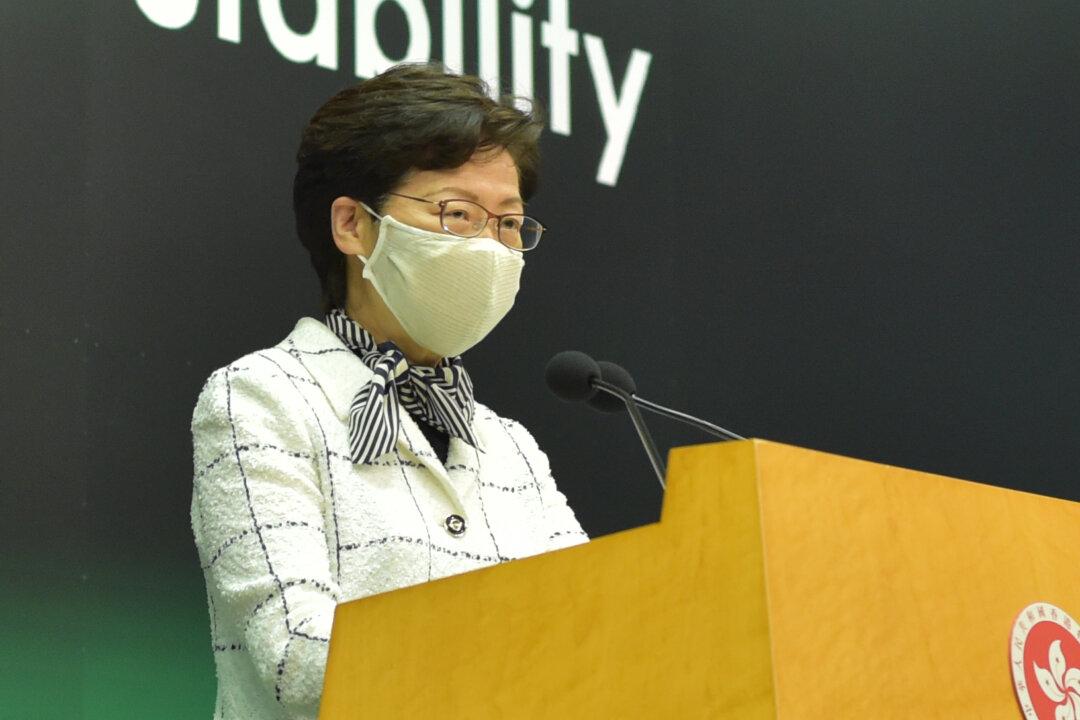Hong Kong leader Carrie Lam refused to comment when asked about a Chinese official’s statement that China is to have jurisdiction over certain court cases in the former British colony under Beijing’s national security law.
Lam dodged the question at her daily press conference on June 16, when she was asked by a reporter to comment on remarks made yesterday by Deng Zhonghua, deputy director of the Hong Kong and Macau Affairs Office—Beijing’s top agency for handling those territories’ policies.





